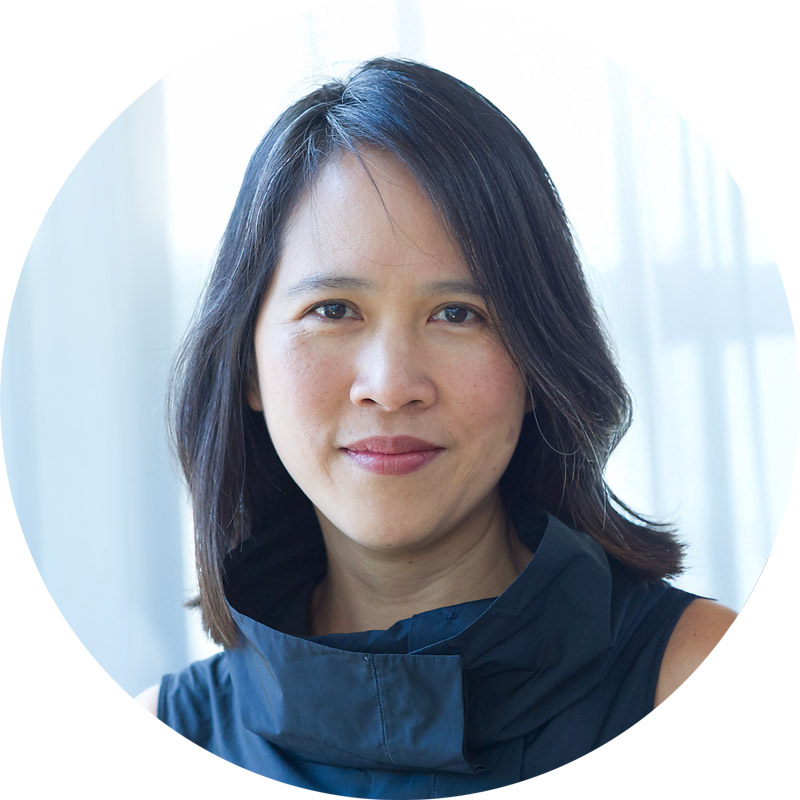

Lily Tsai
ILLUSTRATION: ANDREA D’AQUINO
Pivotal to this fascination was her experience growing up as the child of war refugees in the United States. “I could never take communication and translation for granted because when you’re talking with somebody who grew up in a different culture, there’s always the possibility that they are unintentionally misreading you.”
For decades, Tsai has examined how communities make decisions and why members of those communities accept the results even when they disagree with them. “Exploring these questions,” she says, “has taken me to town hall meetings and village assemblies all over the world.” Tsai has conducted research in locations as far-flung as Kenya, Tanzania, Liberia, the Philippines, and rural China—and also at town hall meetings in Hagerstown, Maryland. “People’s views almost always change at least a little bit when they’re talking in person,” she says. But increased access to the internet and new technologies, like smart phones, social media, and AI, are changing how people communicate and make decisions as communities. “How trust and technology come together in a way that members of communities accept the results even when they disagree with them is important for living in diverse societies.”
Tsai and her colleagues in the Department of Political Science have launched MIT’s Strengthening Democracy Initiative, through which they will seek to highlight important research on the democratic process, foster synergies between political science and other disciplines, and ultimately create a leading center for the study of healthy democracies.
A new public square—online
“Social media is often very antisocial,” Tsai notes, and how to build trust in online political and civic discussions presents different challenges. “The design of social media platforms prevents people from coming together to figure out situations, the moderate majority disappears, and that just makes the extremes get more extreme.”
Online conversation is also easy to leave, Tsai points out. Last year she asked a student, “What do you and your classmates do when you’re talking about heated topics?” In online interactions, the student told her, “We just leave the channel. We do that in real life too; we just leave the room.”
“But if everyone is just leaving the room,” Tsai asks, “how will we understand another person’s perspective, develop empathy, and work together to make the collective decisions that affect everyone in society?”
A compass for a new path
One of the many places MIT is tackling this issue is in 21.01 Compass Course: Love, Death, and Taxes: How to Think—and Talk to Others—About Being Human. This new undergraduate class was designed by a faculty working group, chaired by Tsai, from across MIT’s School of Humanities, Arts, and Social Sciences with input from colleagues in science and engineering. It tackles big questions: What do we value? What do we know? And what do we owe one another? Incorporating input from a 13-member student advisory board, the group sought ways to help students become more capable citizens. “MIT students see themselves as makers, and we want them to think of themselves as makers of democracy too,” says Tsai. “We want to enable our students to go out into the world and have a positive impact there.” The Compass initiative plans to have an online version of the class, as well as versions open to alumni, faculty, and staff.
Using AI to facilitate healthier discussions
At MIT and elsewhere, Tsai says, “there’s a growing community of scientists and engineers that are thinking about how to create a new digital civic infrastructure.” She and colleagues in computer science developed a platform called deliberation.io, applying the lessons Tsai gleaned from her research on town hall meetings and village assemblies. They hope to create online platforms that encourage healthy public discussion and deliberation, “designing and integrating AI in a way that augments rather than substitutes for human participation,” she says. “AI is a tool, and we’re wondering whether it can help us build our muscles for reasoned reflection and pro-social interaction.” The team is testing a “reason-giving” AI assistant, which takes the user’s comments and asks, “Why do you think that?”
Another strategy using AI: “Some of our pilot research shows that when there are AI moderators in a discussion,” says Tsai, “participants are more likely to say that the experience made them think differently and consider new ideas, perhaps because the moderators are seen as impartial.”
Tsai and partners at Stanford University are collaborating with the Office of the Chief Technology Officer of Washington, DC, to advance public discourse on AI policy. The pilot examines the extent to which online deliberation platforms complement or substitute for in-person discussions in facilitating democratic deliberation on public issues.
Gradually opening up to different viewpoints
Hoping to coax MIT students out of like-minded “bubbles” where everyone they know agrees with them, Tsai is encouraged by research showing that in online deliberations, “if you start by presenting participants with viewpoints similar to their own and then slowly expose them to different ones, they are more likely to feel like they were represented and to think of the process as legitimate.” Building skills around having difficult conversations, like building trust in democracies and sustaining democracies, is hard—It takes a lot of work to understand people who are different from ourselves. But when you do succeed, it means that you are able to forge connections and bridge across groups, and that makes your understanding of people richer and more expansive.”